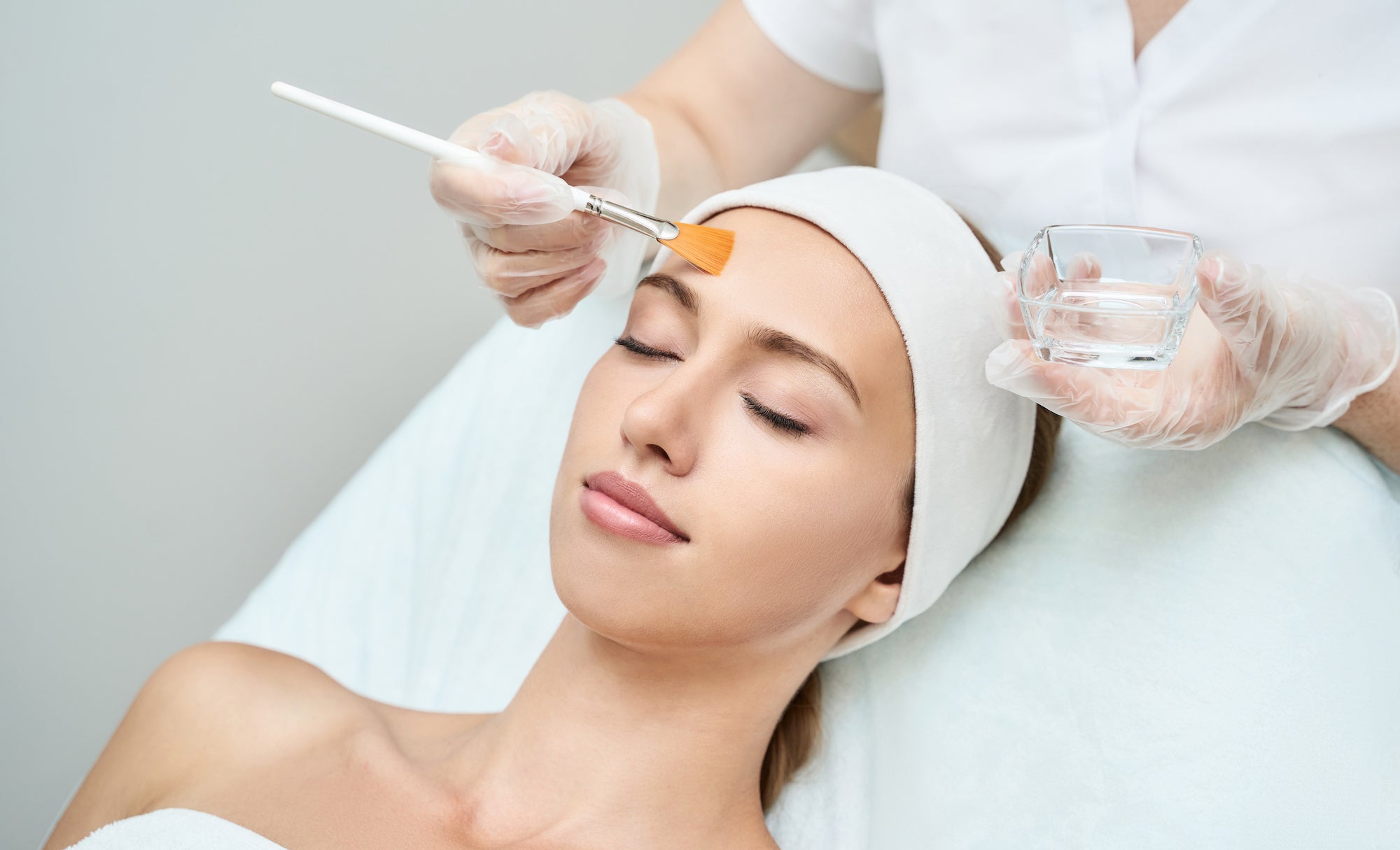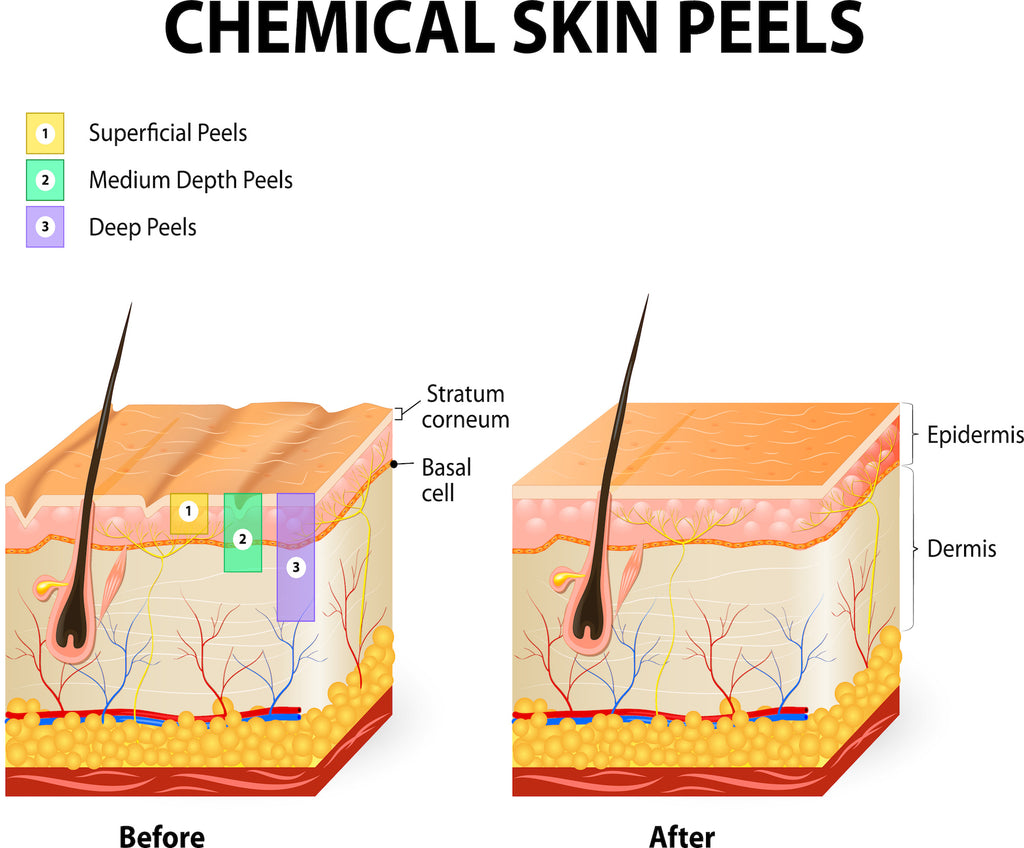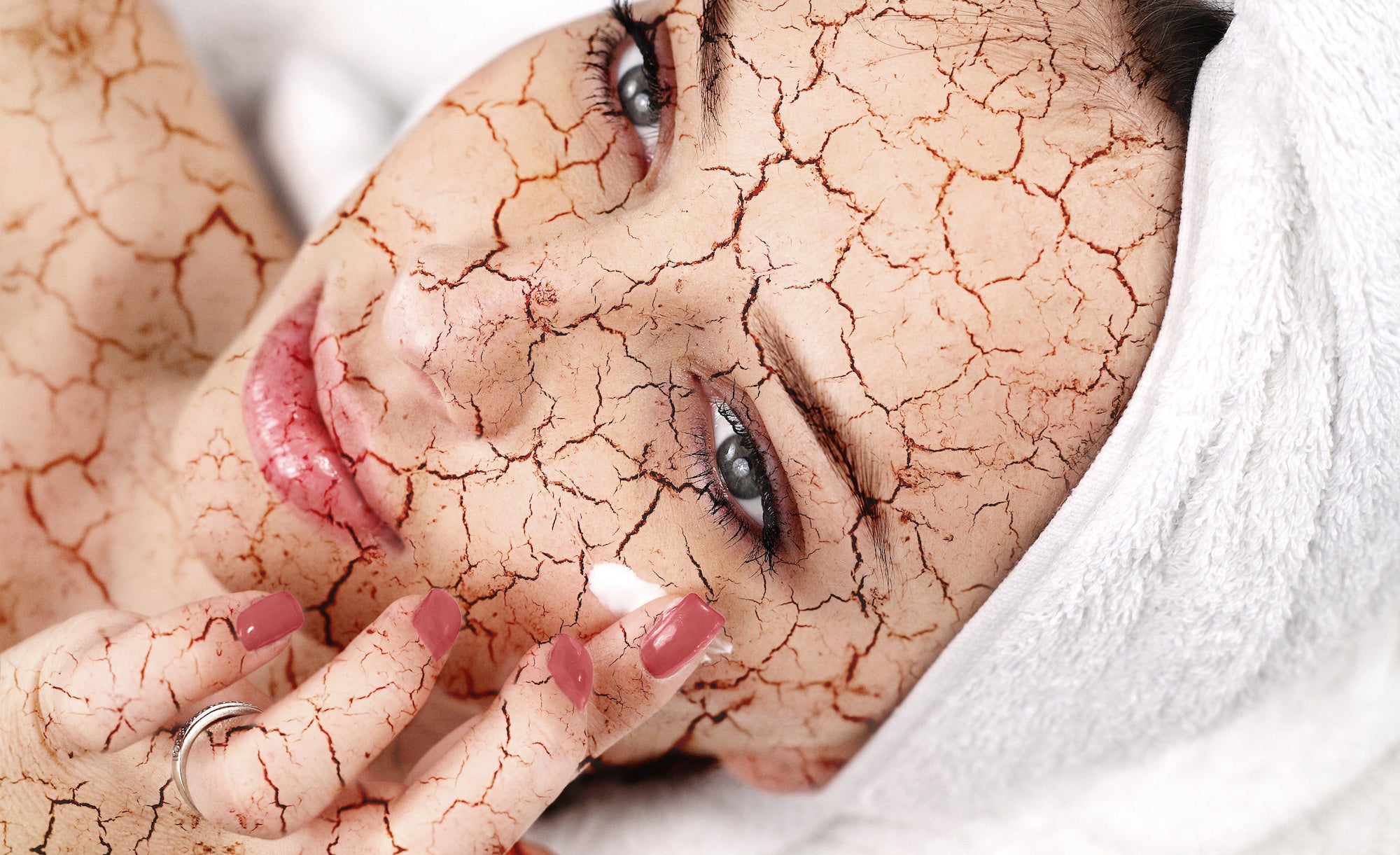
What is a Chemical Peel and Why Get One?
It's the most wonderful time of the year, full of good cheer and. . . chemical peels!
You can take advantage of staying home this holiday season by getting all the skin treatments you've been putting off. During chemical peel season, you can shed layers of dead skin cells in the comfort and privacy of your own home.
Dermatologists do it best, but if you can't make it to a board certified practitioner there are plenty of options to safely give yourself a DIY peel at home.
Would you benefit from a chemical peel? How do you take care of your skin afterwards? We have these answers for you and more.
Benefits of a Chemical Peel
Chemical peels work within layers of your skin to shed dead skin cells and make way for new cellular growth. This renewal process can improve the texture and luminosity of your skin.
Chemical peels can help lessen fine lines and wrinkles to create smoother looking skin. You can also achieve a brighter complexion and even out your skin tone.
**Chemical peels are designed for lighter skin tones, so if you have darker skin consult with a dermatologist. They will have the optimal treatment options for your skin type.
Dermatologists use chemical peels to treat many skin conditions, including acne, discolorations, age spots, melasma, freckles, and sun damaged skin.
3 Types of Peels
There are three chemical peel intensities, all with different recovery times. The deeper chemical peels require more downtime while superficial and medium depth peels are very gentle on the skin.

Superficial
Superficial peels such as glycolic, salicylic or retinoic acid peels, are very gentle on the skin. According to The Dermatologist, they "affect the stratum corneum and stop penetration at the granular layer."
You will most likely recover within 1-2 weeks, at which time you can have another one if you'd like. You can perform superficial peels safely at home after consulting with your dermatologist.
Medium Depth
The Dermatologist explains, "Medium depth peels are typically performed by a physician or under the supervision of a physician and can penetrate down to the papillary dermis."
Medium peels such as a 35% TCA peel are more invasive and it is recommended to have one no less than 4-6 weeks apart.
Deep
Very rarely do Dermatologists perform deep chemical peels. "Deep peels should be performed by a physician and can reach the reticular dermis, causing deep wounding," according to The Dermatologist.
More than likely you will only need one treatment if you get a deep peel from your dermatologist.
Chemical Peel Aftercare
As your skin is recovering from a chemical peel it may shed in visible layers, or you may not notice the shedding at all. Depending on how deep of a peel it was, your skin may become itchy and feel dry. Taking good care of your skin after a chemical peel is important so you can enjoy the results and benefits of the treatment.
1 Be Gentle
This is not the time to bust out all your skincare products. Your skin is going through a transformation and needs to be left to process naturally. Leave the exfoliants and retinols for when your skin has fully healed.
2 Don't Pick or Peel
As your dead skin begins to peel, leave it alone. Don't pick, peel, or touch your face as you heal. Picking at it can lead to skin discolorations and infections.
3 Keep Your Skin Hydrated
Your skin will start to feel tight, dry, and may become itchy. Soothe your sensitive skin with Oxygenating Hydro-Matrix.
As your skin processes the sudden changes it requires oxygen and breathability for optimal results. Hydro-Matrix contains Oxygenetix hero ingredient Ceravitae® which actively supports the natural renewal and regeneration of skin cells, creating an environment where oxygen uptake seamlessly integrates into the skin's renewal process. The breathable mesh in Oxygenetix products allows the skin to breathe while delivering powerful ingredients. Hydro-Matrix is great for post-treatment and also everyday use with Hyaluronic Acid and Sodium PCA which will give your skin's delicate barrier the moisture it needs.
4 Protect Your Skin
Most importantly, protect your post-treatment skin from the damaging effects of the sun. You can do this by applying a broad spectrum SPF 30 or higher each day. If possible, try to stay out of the sun for 2 weeks after getting a peel. The sun can cause blotching and skin discolorations if your skin is unprotected.
Oxygenetix Oxygenating Foundation provides a barrier from pollutants while giving you desired coverage after a chemical peel.

How to Apply Oxygenetix After a Chemical Peel
Oxygenetix Hydro-Matrix and Oxygenating Foundation were designed to be used after skin treatments and procedures like chemical peels.
Follow these steps to get the most benefit from these revolutionary products:
- Cleanse your skin with cool water before applying Oxygenetix.
- Using a disposable sponge or clean facial brush, apply Oxygenating Hydro-Matrix on the entirety of your face and neck.
- Using a disposable sponge or a gloved hand apply your Oxygenating Foundation using tapping motions. Be gentle and patient as you build layers for desired coverage.
- Skip the powder including powdered blushes and bronzers. If you want to contour use a darker shade of foundation and blend it out with a sponge.
- Cleanse any brushes you used after each application.



Laisser un commentaire
Ce site est protégé par hCaptcha, et la Politique de confidentialité et les Conditions de service de hCaptcha s’appliquent.